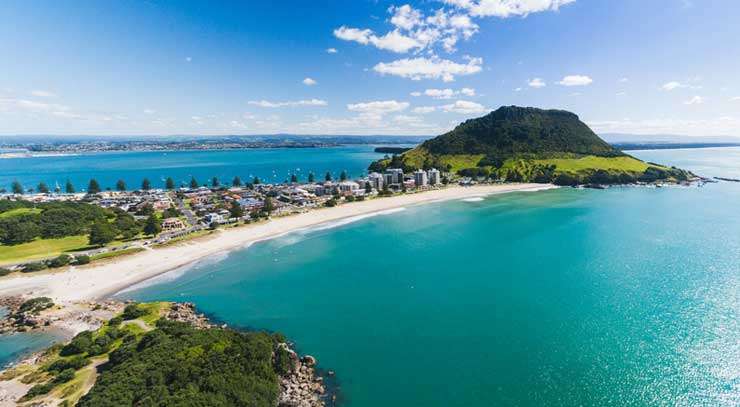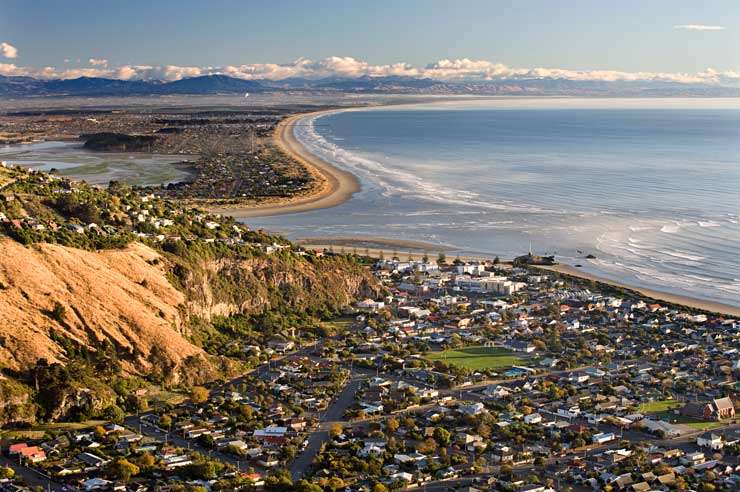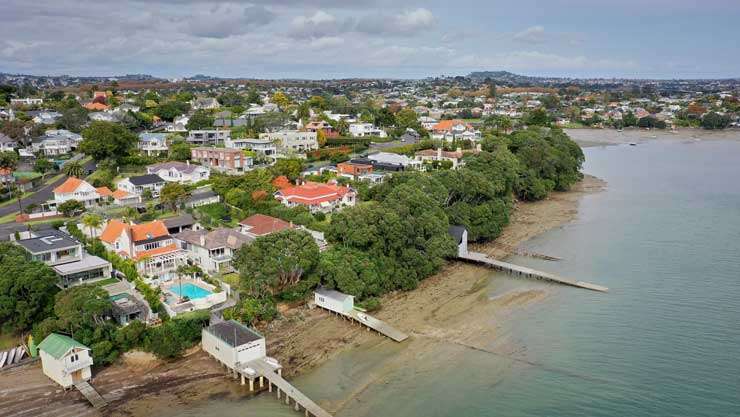A year ago the housing market was in boom mode, with the country's average property value up 12% on the previous year to $827,000. The headlines screamed "housing frenzy" as first-home buyers and investors, enticed by ultra-low interest rates and driven by post-lockdown FOMO, flooded the market.
Concerns were raised that prices were rising too quickly and in December the Reserve Bank signalled its intention to bring back the loan-to-value ratio rules it removed in March 2020 in a bid to take the heat out of the market.
Fast-forward 12 months, however, and house prices have gone even higher, with the average property value rising 27% to just over $1.05 million, despite repeated attempts to slow the pace of growth. The Reserve Bank is again threatening to tighten the flow of credit, amid fears that inflation is out of control and that house price rises are at unsustainable levels.
Start your property search
This time there are signs that the boom is coming to an end. While overall house price inflation is still strong, the housing market is showing signs of fatigue in some parts of the country.
The OneRoof-House Value Index figures for November point to slowdowns in eight regions. The weakest part of the country is Marlborough, where the average property value rose just 1.1% over the quarter to $759,000, although Gisborne and Manawatu-Whanganui were not far behind, recording growth of just 2.7% and 3.6% respectively.
Canterbury, driven by strong sales action in Selwyn and Christchurch, enjoyed the country's biggest rise per quarter, with its average property value up 9.3% to $743,000. And despite a more than three-month-long lockdown, Auckland saw its average property value rise 6.6% to just over $1.5m - $93,000 more than where it was at the start of the Delta outbreak.
Buyer demand in the city is strong and sales volumes are picking up after a slow and uneasy September, with more stock making its way to market and agents racing to cram in as many auctions as they can before Christmas.
The Bay of Plenty has joined Auckland and Greater Wellington in the $1m club, with quarterly growth of 5.9% pushing the region's average property value up $57,000 to $1.022m.

Mt Maunganui. Heat in Tauranga's housing market saw Bay of Plenty's average property value cross the $1m mark. Photo / Getty Images
Also fast approaching the $1m milestone are Tasman (average property value of $973,000) and Waikato ($937,000).
With an average property value of $373,000, the West Coast remains the cheapest region for property, although with quarterly growth of 5.7% it's likely to nudge over the $400,000 mark sometime soon.
Of the major metros, Christchurch enjoyed the biggest quarterly value rise (up 10.1% to $731,000), which is not surprising given its recent strong run of auction sales.
A 7.7% rise over the quarter added another $85,000 to Tauranga's average property value, now $1.189m, and it's possible that continued heat in the market will push it ahead of Wellington, where the average property value rose 3.6% ($44,000) in the last three months to $1.254m.

The average property value in Christchurch has risen 10.1% in the last three months. Photo / Getty Images
Dunedin remains the weakest major metro, with the city's average property value rising 4.1% over the quarter to $731,000, while three-month growth in Queenstown-Lakes and Hamilton was 4.9% and 5.3% respectively.
Property values in all but four of New Zealand's 72 territorial authorities grew over the quarter. On the slide were Waikato (-1%), Ashburton (-1.9%), Ruapehu (-2.1%) and Kawerau (-8%), although all four saw 12 months of growth of more than 20%.
Within Auckland, the heat is evident on Waiheke Island (up 8.9% over the quarter to $2.073m); new-build mecca Papakura (up 8% to $1.141m); and South Auckland, where developers' thirst for land has driven up the average property value 8.2% to $1.122m.
The Auckland suburbs that have done best during lockdown are all coastal: Piha (up 14.6% to $1.51m); Tawharanui Peninsula (up 14.4% to $2.344m); and Kawau Island (up 14.4% to $1.018m).

Homeowners in Herne Bay enjoyed a near-$300,000 lift in the suburb's average property value in the last three months. Photo / Chris Tarpey
Dollar-wise, home-owners in Herne Bay came up tops, with the last three months adding almost $300,000 to the average property value. The harbour-front enclave is still the country's most expensive suburb for real estate, with the average property value breaking the $4m mark (Murupara in Whakatane is the cheapest, with an average property value of $174,000).
Of the 768 suburbs nationwide that recorded 20 or more sales since November, 35 saw negative growth over the quarter. The highest-profile casualty was Oriental Bay, in Wellington, where a decline of 3.6% axed almost $100,000 off the suburb's average property value, now sitting at $2.598m.
Only one suburb, Horopito, in Ruapehu, has suffered a 12-month drop in its average property value (-0.4% to $560,000), but the market should brace itself for more dips as growth eases in response to higher interest rates and a tightening of credit.
Overall, government policy changes and the reintroduction of LVR by the Reserve Bank appear to have dampened investor demand, with the buyer group's share of new mortgage registrations nationwide dropping below 25% in the second and third quarters of the year. There are signs, though, that investors are starting to come back to the market (their share so far in quarter four is 26.2%).
First-home buyers have stepped in to fill the gap and their share of purchases has risen from 35% in the first quarter to just over 38% in quarters two and three.















































































